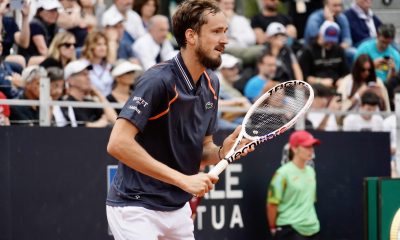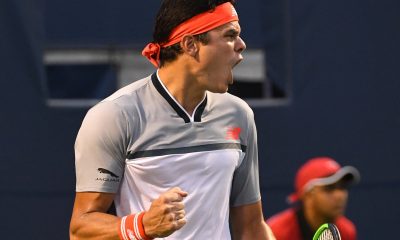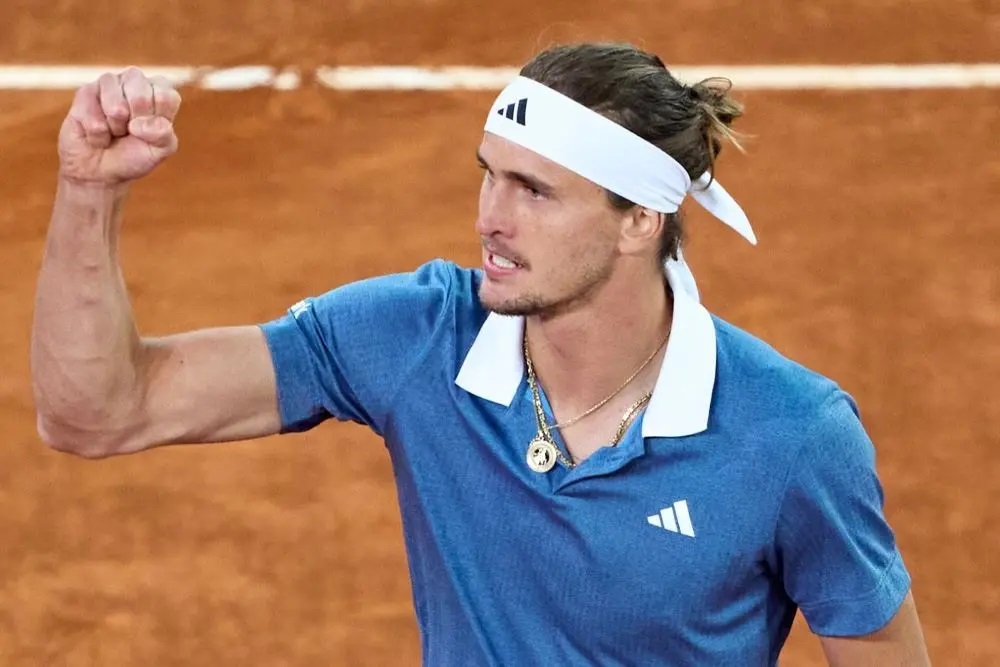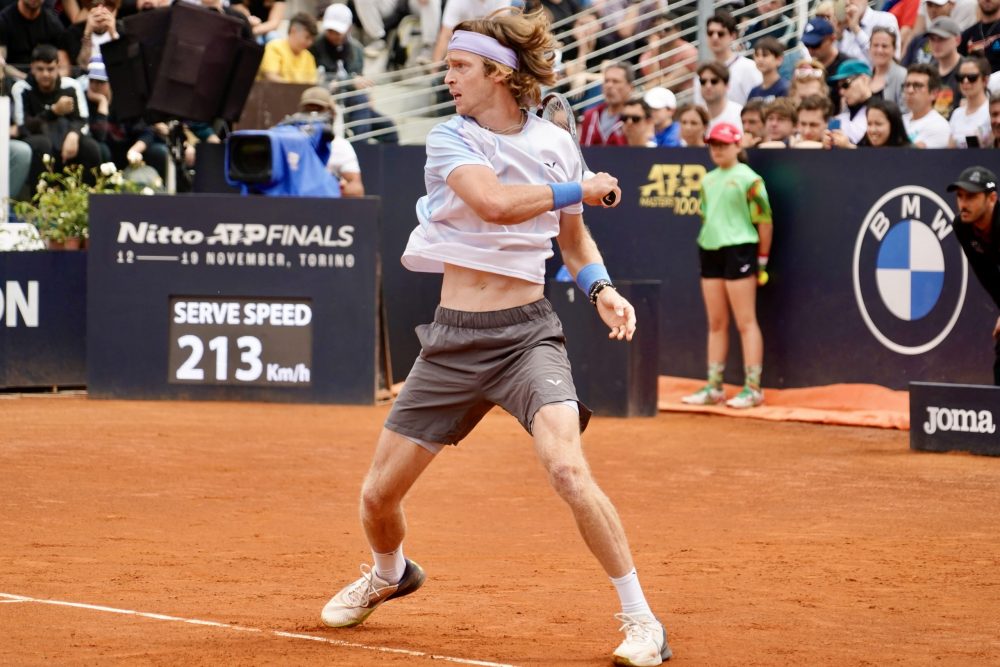TENNIS 2014 ROLAND GARROS – 30th of May 2014. M. Raonic d. G. Simon 4-6, 6-3, 2-6, 6-2, 7-5. An interview with Gilles Simon
Q. Good evening. After Wawrinka, Federer, Raonic in five sets, now are you cursed here on the courts?
GILLES SIMON: I love your questions so much. Are we talking about the five sets I won? No? Yeah?
I don’t think I have lost more matches in five sets than I have won here. But that’s true, three times I have lost in five set matches against three good players, Wawrinka, Federer, and Raonic.
So this is a bitter loss, a tough loss, a five set defeat. You know, it was easier to be defeated, what was it, in 2010 against Soderling in three sets? You know, it was the round of 16. He defeated me strongly. It’s easier to swallow.
But now, you know, I like this thing, you know, being cursed. A five setter match is a curse.
No, I have won several five set matches. I don’t feel I’m cursed here.
Q. Now, on this match this evening you’re bitter probably because during the five sets you came back at the last moment, and then you fell down again. This is when it really turned around.
GILLES SIMON: Well, yeah. For a five set match, you know, the lessons you remember are the games, the points at the end of the match. But maybe if there is something I did wrong it was not during the fifth set, it was before.
The fifth set was tougher for me because the more you play against these players and the less you play, the more you play badly; therefore the more difficult it is for you to give the good shots.
Therefore, when I had two positive dynamics in the match, then he came back into the match and it was silly of me.
The first time my serve game was not good; I broke back against him. I thought, It’s going to be okay, but then in the fourth I had just finished really well and then I was like a phantom. I gave him a break game.
Each time I couldn’t really bother him. He was having no doubts. During the fifth set I think he was taking control. He was playing a lot better. If I regret something, it’s not during the fifth set. If I have one regret, it’s to finish when it’s nighttime.
You won’t see anything. You always have this impression that it’s a bad thing, a bad moment. Should you stop the moment and it’s 5 5, during the fifth set? You don’t want to stop if it’s 5 All.
Or should I continue? I was thinking about this. We couldn’t see anything. It’s 9:30. You can’t play at 9:30 at night.
So that’s true. At the end of the match it was difficult. I don’t think though that this was the turnaround point. This is not when I made silly things today.
Q. There was a big match against Nadal in Rome; a big match again today. So are you very satisfied because you’re now back on the right tracks, or would you say you’re more frustrated today because you couldn’t open this door, which is only slightly open?
GILLES SIMON: No, I’m very disappointed. You know, and today I’d say this match has nothing to do with the match against Nadal. Sorry.
But today, well, you know, again, we’re not in tennistic geniuses. It’s two or three points. It’s either out or just in, in the corner, not enough rhythm, and you always have the impression that it’s well, but it never reaches hilltops, if I can say.
It’s a different intensity, different atmosphere. And then the public was incredible, because there were moments when they feel it’s almost there. But then you feel it’s, you know, this thing, this moment.
And then when you play against Rafa it’s all the time, all the time. It’s each point. It’s, Wow. It’s going to be tense. That’s it.
Well, for me, on the court, and even though the atmosphere is incredible in terms of, you know, my pleasure, enjoying it, and so far from Rome.
Well, we know it, and that’s what’s good about this sport, that we have different profiles, we have different players to play against.
And therefore you have to use other skills and other qualities, as well. Today I’m a bit disappointed, because I thought I could have done better than that again.
I could have made this easier for me. But each time I was up, he managed to come back. During the second one, the fourth one, as well, immediately he didn’t have to think too much.
Therefore, at the end of the day, it wasn’t a good management of the match as far as I’m concerned from A to Z.
Q. Would you say that Milos has improved from the baseline? Would you say you felt this and that the other players feel this way as well?
GILLES SIMON: Personally, I don’t know anything about the other players. I can’t say anything about them or what they think. But for me, no, not really. Not frankly, no.
No. You know, well, he’s got his own game patterns. He knows what he wants to do. A few shots he does really well. You know, his strengths, his strength is that he brings you into his game pattern.
But then when he tries things, sometimes it’s so odd, so strange. You know, a dropshot that bounces into the net, that’s strange.
You know, well, again, you can’t ask a player like Milos, given his size, to have the touch, the timing of a smaller, a tinier player. That’s his strength. His strength is his serve. You know, 15 degrees and it’s always 220, 220 all the time. Five hours, 220 always. On you. Ceaselessly.
You know his strength, which is incredible, which is at the end of the day, with the tennis, which is so random sometimes, he has the strength in him to play the right shot at the right moment.
You know, most players you play against on the tour, they can win eight times out of ten. But Milos is the contrary. Look at his backhand. Not many good shots, and when it’s very important it’s a passing shot after running. Oh, shit, you know.
This is quite puzzling. You don’t know how to react, because this is what he does. It’s his habit. I look at the match in a more general way. I have the impression I have to win, you know, to have more points.
But he is seizing each opportunity at the moment. If there is a break point, he hits it and he wins it. And then afterwards, he can have ten points out. He doesn’t care, because he managed to do the break point at the right moment.
I’d like to have this strength. That’s his game style, and that’s why he’s very dangerous.

 Hot Topics3 days ago
Hot Topics3 days ago
 Hot Topics3 days ago
Hot Topics3 days ago
 Hot Topics2 days ago
Hot Topics2 days ago
 Hot Topics1 day ago
Hot Topics1 day ago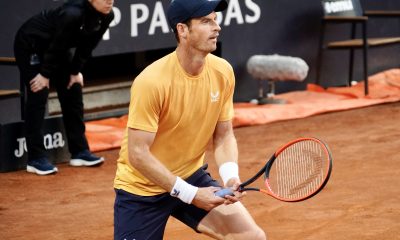
 ATP3 days ago
ATP3 days ago
 Focus2 days ago
Focus2 days ago
 Latest news2 days ago
Latest news2 days ago
 Latest news2 days ago
Latest news2 days ago

